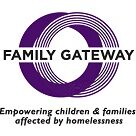May 11, 2021 – McKinney Courier-Gazette – Metro Dallas Homeless Alliance
On Tuesday, the Metro Dallas Homeless Alliance (MDHA) held its seventh annual State of Homelessness Address, delivered by MDHA Board Chairman Peter Brodsky and Ashley Brundage, Homeless Collaborative of Dallas and Collin Counties Board chair.
Brundage shared how the Homeless Collaborative is strategically aligning to reimagine the homeless rehousing system, and Brodsky stressed how data-driven decision making is key to ending homelessness and called on the community to do what it takes to end homelessness. The address will be posted in full on MDHA’s website.
Brundage described the complexity of homeless services and the use of a collective impact strategy to bring all service systems together under one community board. She also stressed how the Homeless Collaborative Board’s success and strength comes from it being made up of systems-level leaders with the clout and network to drive multi-sector solutions to end homelessness.
“The key to this work is our collective will to engage, empower and align,” she said. “We will amplify what works, rethink how we prioritize populations, and streamline the way we allocate resources, all to meet our goal of ending homelessness.”
The Homeless Collaborative has three goals over the next four years: to end veteran homelessness by 2021, to drastically reduce chronic unsheltered homelessness by 2023 and to significantly reduce family and youth homelessness by 2025. The Homeless Collaborative has housed approximately 700 veterans since 2019 and recently launched a rapid rehousing surge to house 550 people.
The address featured interviews with Dallas City Manager T.C. Broadnax, Dr. Fred Cerise, Parkland Health president and CEO, Shanette Eaden, City of Plano Housing and Community Services Manager, Ellen Magnis, Family Gateway President and CEO and John Siburt, CitySquare President and CEO, who shared lessons of COVID-19 and underlined that the way to create measurable social change was to work together towards a set of common goals.
Brodsky announced that MDHA is actively building a data warehouse system to connect multiple data systems and unify the efforts of many disparate entities.
“By tracking strategic data points in one system, we can make data-driven decisions and promote what works,” Brodsky said. “Through smart data driven decision making, we will ultimately end homelessness.”
The address included results from MDHA’s annual homeless count. MDHA and its partners found 4,570 individuals who experienced homelessness and around 500 who experienced chronic homelessness. A detailed report will be posted on the MDHA website.
Brodsky ended the address with a call to action: “Most of us want housing for everyone in our community… We need to ensure that our representatives in all levels of government hear us say, yes in my back yard, yes in my community… Because, even the most efficient homeless rehousing system cannot make any progress without that one thing that ends homelessness, housing.”
Click here to view the full story.
